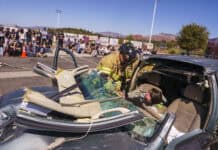Dear Dr Rosenberg,
Seven months ago my son was thrown from a horse. He was unconscious for about six hours. Ever since the incident he has been having trouble staying awake in school and concentrating. When home he wants to nap often. Our Health Care Provider thought it was depression, but anti depressant medication has not helped. What are your thoughts?
It is not uncommon to exhibit sleepiness after Traumatic Brain Injury. This is defined as an injury severe enough to cause loss of consciousness. We believe there may be damage to the wakefulness centers in the part of the brain called the hypothalmus. If this continues, you should consult a Neurologist. There are several medications available to help people through this period.
Dear Dr Rosenberg,
I am 72 years old and have had trouble staying asleep ever since menopause. My doctor has tried several medications and none have worked. Ambien gave me nightmares and Lunesta leaves a bad taste in my mouth. Is there anything out there that might help? I am miserable when I don’t get enough sleep.
Yes, actually there is something that might help you. It is a very old medication called Doxepin; now being marketed as a new medication called Silenor. It is being used in doses that are a fraction of what was commonly used in the past. In a recent 12 week trial published in the Journal Sleep it was found to be very effective and remarkably safe in an elderly population. It was particularly helpful in those who could not remain asleep or experienced early morning awakenings. Because Silenor is being used in low doses, side effects are very rare. Please discuss this with your physician.
Dear Dr Rosenberg,
My Epilepsy was well controlled for a long time. However in the last year, I have been having more seizures. I am a 49 years old and have gained 40 lbs over the year. I snore loudly and my husband says I should point this out to my Neurologist. What good will this do?
Anything that fragments and or disrupts sleep can result in sleep deprivation.
We know that sleep deprivation lowers the seizure threshold by increasing cortical excitability. Therefore, if your snoring is a sign of underlying Sleep Apnea it needs to be addressed. Numerous studies have shown that treating Sleep Apnea in epilepsy can have a very positive effect.
Dear Dr Rosenberg,
I am treated for chronic GERD with diet and medication. Recently, I was diagnosed with a precancerous condition of the esophagus called Barrett’s. About 10% of the time my heart burn awakens me from sleep. My doctor wants me to have a sleep study. Since, I don’t snore what is the point?
First of all, Barrett’s is highly associated with nocturnal GERD. The reason is that heartburn which occurs at night tends to be more severe. The acid remains in contact with the esophagus for much longer periods of time. Some sleep labs will place a probe down your esophagus while sleeping. This can detect reflux of acid. Another reason is that although you may not snore, you might still have Sleep Apnea. When we have apneas, we breathe against a closed airway and the suction effect can cause acid to come up from the stomach. Therefore, I agree with your physician that a sleep study is indicated.
Dr. Robert Rosenberg, Board Certified Sleep Medicine Specialist, will answer readers’ questions by incorporating them in furture columns. Contact him at askthesleepdoc@yahoo.com or via mail at the Sleep Disorders Center of Sedona, 210 S. Sunset drive, suite A-1, sedona, AZ 86336.


















